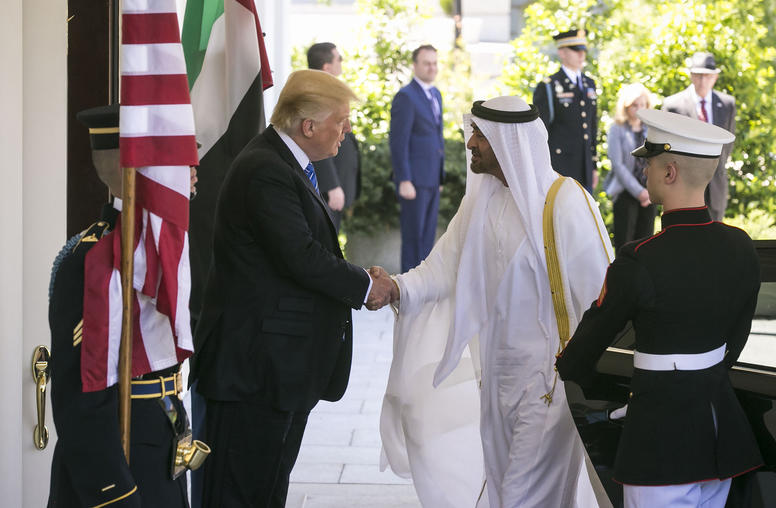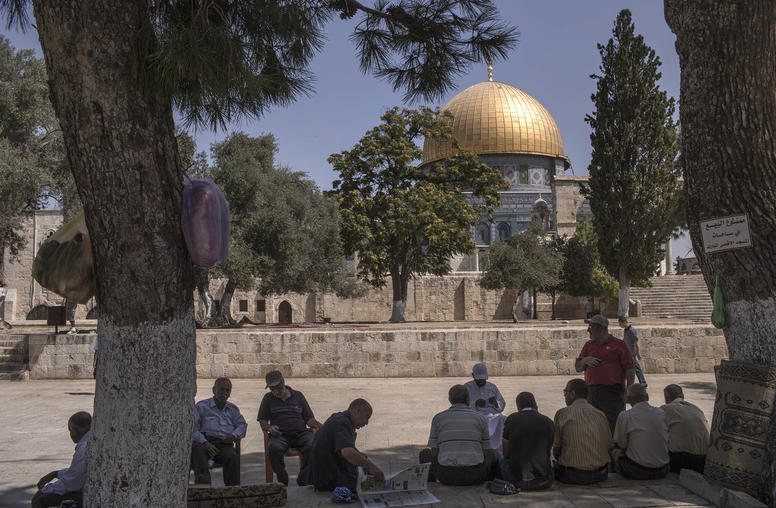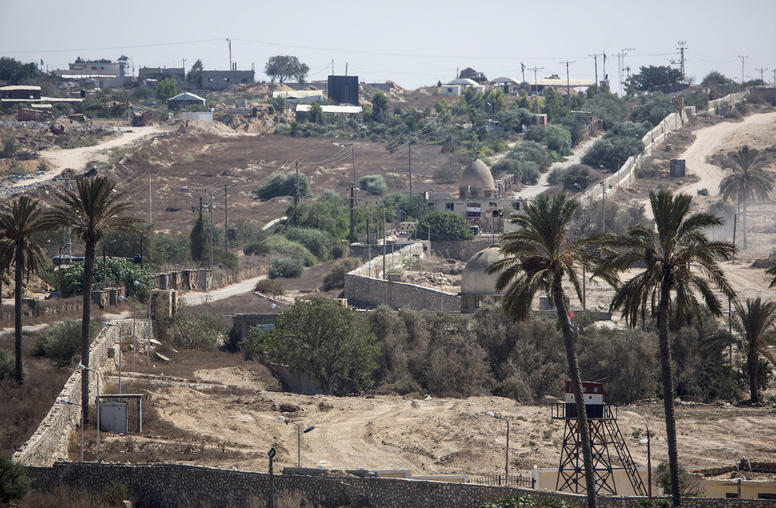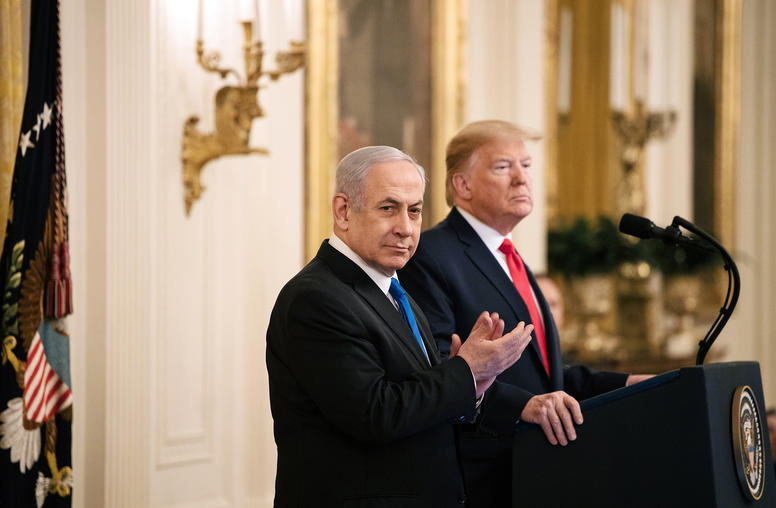Publications
Articles, publications, books, tools and multimedia features from the U.S. Institute of Peace provide the latest news, analysis, research findings, practitioner guides and reports, all related to the conflict zones and issues that are at the center of the Institute’s work to prevent and reduce violent conflict.

What Do Normalized Israel-UAE Relations Mean for the Region?
On August 13, the governments of Israel and the United Arab Emirates (UAE) announced that they had agreed to the full normalization of relations, in exchange for Israel suspending announced plans to annex large areas of the Palestinian territories. Dubbed the “Abraham Accords,” this agreement between Israel and the UAE—if fully implemented—would be the first Arab-Israeli reconciliation of its kind since the 1994 Israeli-Jordanian peace treaty, and stands to prevent, at least temporarily, Israeli-Palestinian and even broader regional deterioration that could have ensued in the wake of Israeli unilateral annexation. USIP’s Robert Barron looks at how the agreement came to fruition, what the United States’ role was, and what this means for the Israeli-Palestinian peace process and Israel’s relations with the Arab world at large.

Ambassador Hesham Youssef on a New Middle East Peace Quartet
With the Israeli-Palestinian peace process at a standstill, USIP’s Ambassador Hesham Youssef talks about a new, diverse quartet of states that can help reinvigorate talks, saying, “joining hands, they can influence both the Arab position and the European position.”

A New ‘Quartet’ for Israeli-Palestinian Peace
Good news for Israeli-Palestinian peacemaking seems rare, but this month’s diplomatic initiative by four states influential in Europe and the Middle East is a constructive development that should continue. On July 7, Egypt, France, Germany and Jordan joined to oppose Israel’s declared intent to annex territory that it has occupied since 1967. Vital actors, including Arab states and the European Union, have been unable to stop the march toward annexation and the attendant risks of renewed violence. Yet a partnership of key Arab and European states—the latest in a string of diplomatic “quartets” on the conflict—offers a foothold on which to build.

Jordan Sees Danger in Trump’s Middle East ‘Vision’
The Hashemite Kingdom of Jordan has long been a cornerstone of Middle East stability, wielding significant political and strategic influence in the region. As a small country with a weak economy bordered by Syria, Iraq, Saudi Arabia, Israel, and the occupied Palestinian territories, adroit diplomacy is one of its key national resources. Now, Jordan faces a fresh diplomatic challenge: the potential impact of President Trump’s plan for the Israeli-Palestinian conflict on its strategic interests and very future. In the months ahead, Jordan—a crucial partner to the U.S., Israel, and the Palestinians—faces a critical juncture in its relations with both the U.S. and Israel coupled with unprecedented internal challenges.

U.S., Israel and Palestinians Tie Knot of Self-Delusion
Diplomats, politicians and analysts have invoked a range of obstacles over the years to explain why Israelis and Palestinians can’t make peace: The time is not ripe; there is no partner; there isn’t enough pressure on one party or the other; one side is willing but unable to make concessions, the other is able but unwilling. Now, as the world focuses on the coronavirus pandemic and its economic repercussions, we can add another, more inclusive explanation: Israeli, Palestinian, and American leaders have all embraced self-delusion on the road to pyrrhic victory.

Lucy Kurtzer-Ellenbogen on Israel’s Political Turmoil and the Coronavirus Crisis
After three elections, Israel’s political crisis is reportedly coming to an end. Lucy Kurtzer-Ellenbogen explains that the focus has now shifted to the coronavirus pandemic and its impact on the Israeli-Palestinian conflict, saying, “What you do often see in the face of these immediate crises is a lot of banding together and cooperation … the question is how long it holds afterwards.”

In Gaza, Israelis and Palestinians Face a Common Foe in Coronavirus
On March 22, authorities in Gaza affirmed the inevitable: the first two confirmed cases of COVID-19 in the Gaza Strip. Gazan officials reported that the two men were immediately quarantined upon entry via Egypt’s Rafah border crossing with the enclave and have remained there, along with all those who had been in contact with them. Yet, since then, the number of confirmed cases has jumped to 10, and the question of how long a further spread of the virus into Gaza can be contained weighs heavily for this densely populated territory, long beleaguered by wars and severe deficiencies in its healthcare infrastructure.

The Long View on Trump’s Israeli-Palestinian Vision
The Trump administration’s vision for addressing the Israeli-Palestinian conflict has provoked diverse reactions from the parties and the international community, leaving opponents and supporters continuing to analyze the initiative and chart their next immediate moves. But taking the long view, some implications of the plan can be glimpsed on the horizon.

Lucy Kurtzer-Ellenbogen on the Israeli-Palestinian Peace Plan
Discussing the Trump administration’s long-awaited peace plan, USIP’s Lucy Kurtzer-Ellenbogen says that although the proposal nods toward a two-state solution, the details leave one “hard pressed to see how it serves as a formula or basis for bringing both parties back to the table.”

Does the Trump Administration’s Israeli-Palestinian Plan Offer a Path to Peace?
Yesterday, at an East Room gathering, President Trump, alongside Israeli Prime Minister Benjamin Netanyahu, unveiled his administration’s plan to address the Israeli-Palestinian conflict. As promised at the outset of his remarks, the approach represents a vision “fundamentally different from past proposals.” The event itself—with the plan unveiled by U.S. and Israeli leadership—presented a visual that underscored this difference, and the challenge this plan faces if it is to chart a course to peace.